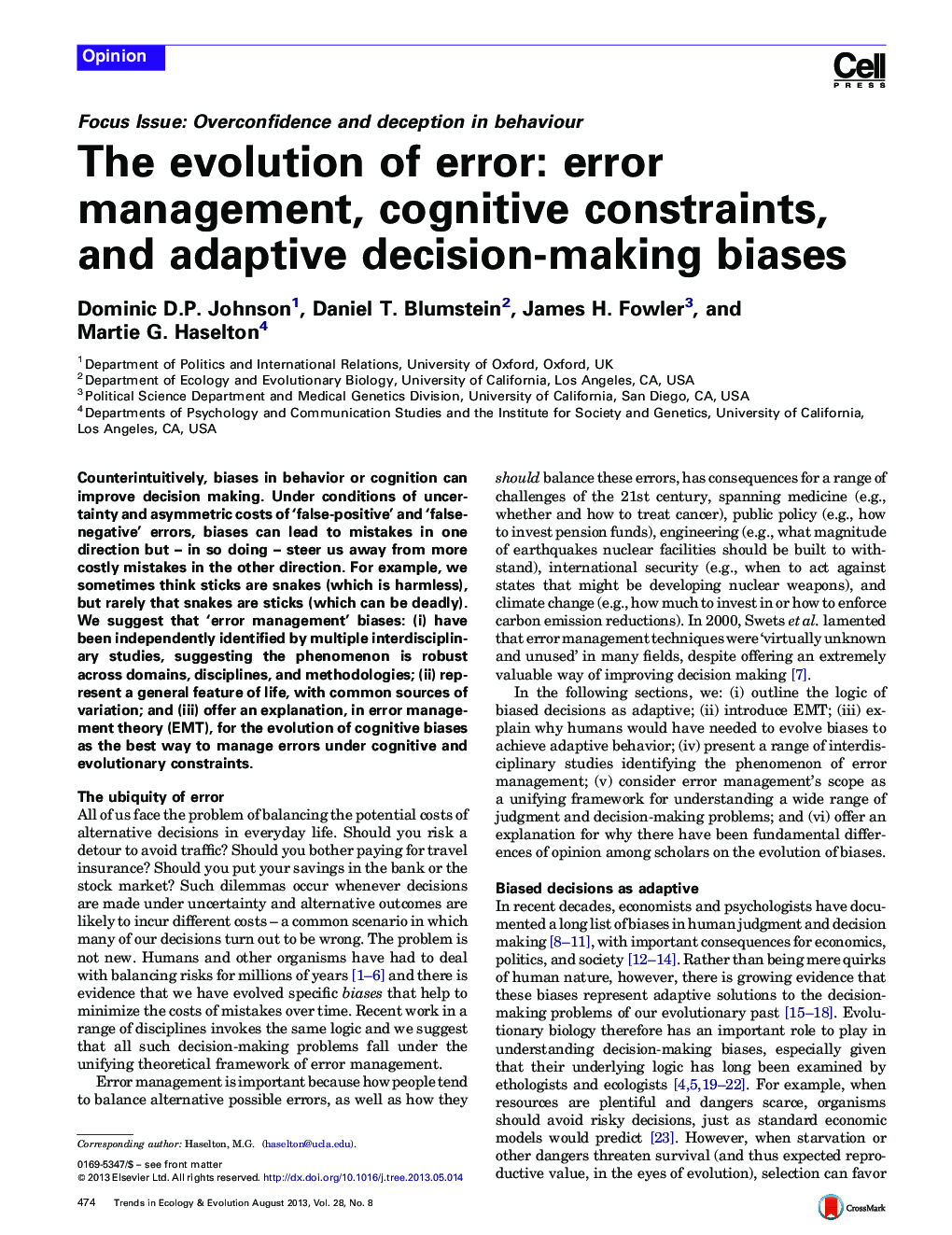| کد مقاله | کد نشریه | سال انتشار | مقاله انگلیسی | نسخه تمام متن |
|---|---|---|---|---|
| 142520 | 163129 | 2013 | 8 صفحه PDF | دانلود رایگان |

• Counterintuitively, biases can improve decision making.
• Numerous studies have identified biases as an effective way to manage errors.
• Given cognitive and evolutionary constraints, psychological biases can be adaptive.
• EMT has a wide scope of application for modern challenges.
Counterintuitively, biases in behavior or cognition can improve decision making. Under conditions of uncertainty and asymmetric costs of ‘false-positive’ and ‘false-negative’ errors, biases can lead to mistakes in one direction but – in so doing – steer us away from more costly mistakes in the other direction. For example, we sometimes think sticks are snakes (which is harmless), but rarely that snakes are sticks (which can be deadly). We suggest that ‘error management’ biases: (i) have been independently identified by multiple interdisciplinary studies, suggesting the phenomenon is robust across domains, disciplines, and methodologies; (ii) represent a general feature of life, with common sources of variation; and (iii) offer an explanation, in error management theory (EMT), for the evolution of cognitive biases as the best way to manage errors under cognitive and evolutionary constraints.
Journal: - Volume 28, Issue 8, August 2013, Pages 474–481